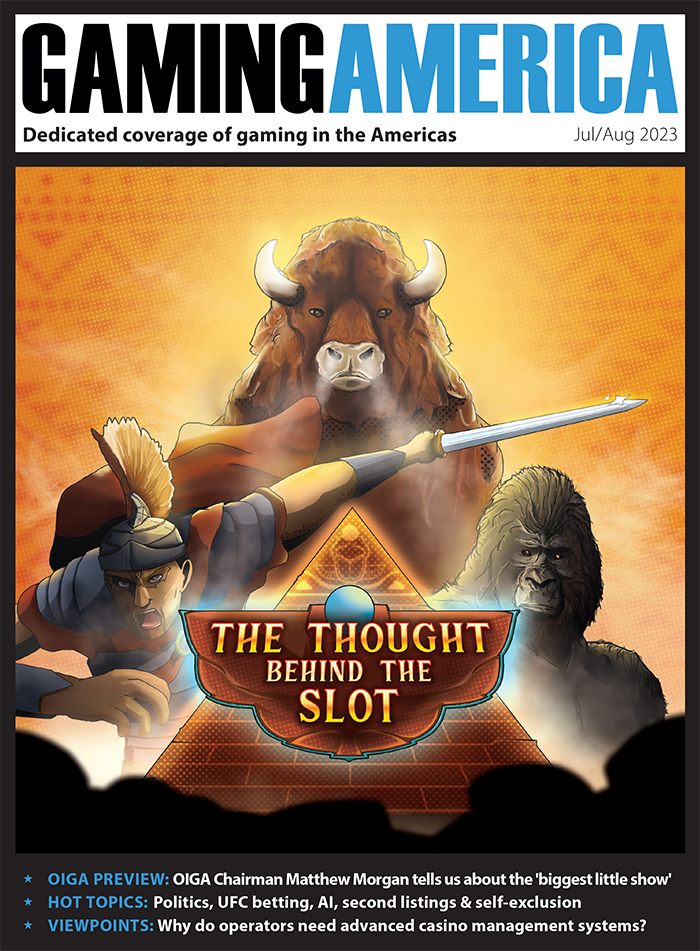
Eighty five years ago, the Florida Supreme Court held that, “Gambling, like many other practices in modern life, has had its evolution and in no field has the wit of man been shrewder; but if the elements constituting gambling are present, the name by which called will not defeat the penalty.”
Creash v. State, which defined “gambling” in Florida, is widely cited as a seminal decision in the state’s ever-evolving gambling jurisprudence. This definition read, “Chance actuated by the hope of getting something for nothing is the controlling element in gambling.”
However, the court’s declaration ‒ that illegal gambling constitutes illegal gambling not withstanding the name of the activity ‒ never fully deterred the widespread use of illicit slot machines within the peninsular state.
Policing the gray market
Change may be coming, albeit nearly a century later. In May, the Florida Gaming Control Commission’s (FGCC) Division of Law Enforcement announced statewide raids targeting illegal slot machine operations.
The FGCC made several arrests and seized millions in cash, and illegal “gray market” gambling machines, from alleged “adult arcades” in a sweeping joint law enforcement operation.
It is one of the FGCC’s first major policing operations conducted since its inception and it also comes on the heels of other states’ efforts to address the prevalent use of similar gambling machines in the last 18 months; including Kentucky, Nebraska, Virginia and Wyoming.
Every jurisdiction in the US maintains gambling statutes, which vary in scope and sophistication. Florida is no exception. There, most forms of gambling are illegal unless exempted by statute or court decision.
Section 849.14 of the Florida Statutes provides a lengthy, 129-word prohibition on staking, wagering and betting anything of value on any contest of skill, speed, or power or endurance of human or beast. Section 849.15 prohibits unlicensed slot machine operations.
Given the state’s formidable statutory proscription against illegal gambling activities and its abundance of political infrastructure, it is ostensibly a mystery why so-called adult arcades pervade strip malls, standalone structures and the dimly lit backrooms of dive bars across the Sunshine State.
This does not mean the adult arcades and the illegitimate gambling they're in went unnoticed. Florida officials were aware of the rise in adult arcades for years, but the state’s responses were minimal and its operations isolated.
Occasionally, county law enforcement agencies, utilizing the assistance of the state’s Division of Alcoholic Beverages and Tobacco, conducted minor raids on illicit gambling operations, often making a small number of arrests and seizing cash and gambling devices.
Largely absent from these law enforcement operations was the former entity tasked with regulating gambling – the Florida Division of Pari-Mutuel Wagering (DPMW). The DPMW, despite being Florida’s then-gambling regulatory agency, was unauthorized to conduct law enforcement operations.
Change of plan
This changed in 2021 when the DPMW was transformed into the FGCC as a component of the gaming compact between the state and the Seminole Tribe of Florida. The rectification includes, inter alia, the addition of sworn law enforcement officers and criminal jurisdiction over illicit gambling operations.
Back to the raids: The descriptions of the seized machines vary. Some reports allege they are regular slot machines, where the jackpot is dependent upon luck via a random number generator.
Others report the machines are hybrid “skill-based slot machines” or “gray market machines,” whereby players utilize a modicum of skill to become eligible to pull a lever and potentially win a cash prize.
Curiously, despite the illegality of gambling in each state, skill-based gaming is expressly legal in a handful of states. In some jurisdictions, a casual wager among friends on an activity where the outcome is dependent on the skill of the participants is not considered illegal gambling.
The go-to example is a friendly game of golf or billiards in which the participants wager on themselves to win. However, skill-based gaming operations can be found in the vast majority of states today, where they operate pursuant to legal opinions providing that if the outcome of a wager is based on skill or if skill predominates chance, the activity does not constitute illegal gambling.
In Florida, skill-based slot machines carry a strong presumption of illegality if the operator does not possess a state-issued license to operate a gambling machine. This means there is little recourse if a user plays, wins, but does not receive the prize.
In fact, it is reported that the initial complaint to law enforcement about machines located in Tampa stemmed from a customer winning a $10,000 jackpot and the owners refusing to pay. Florida is not alone in addressing the proliferation of illegal and gray market slot machines.
In Virginia, the State Government is currently engaging in protracted litigation with alleged skill-based slot machine operators. In Nebraska, law enforcement recently arrested skill-based slot operators on tax evasion charges. Kentucky considered forming a police task force dedicated to curtailing illegal gambling, based on the ubiquitous nature of gambling machines.
Until recently, the beginning of the FGCC appeared to be more rebrand than reformation. Horseracing, cardroom, slot machine, and jai alai operations, all exempted from Florida’s anti-gambling laws, persisted without significant change.
The agency continued its licensing functions and promulgation of administrative rules governing the activities that millions of Floridians and tourists enjoy annually without significant delay. Behind the scenes, however, a modern regulatory body is emerging.
Conclusion
Emblematically, the statewide law enforcement suppression of illegal gambling is a flex of the Commission’s new authority and statutory reach.
There is little doubt the 1938 Florida Supreme Court would agree that the new regulator is unafraid to call illegal gambling what it is, but lest we forget that “in no field has the wit of people been shrewder.”
The regulatory dynamic in Florida is changing, but the methods employed by those adversarial to it will too.

